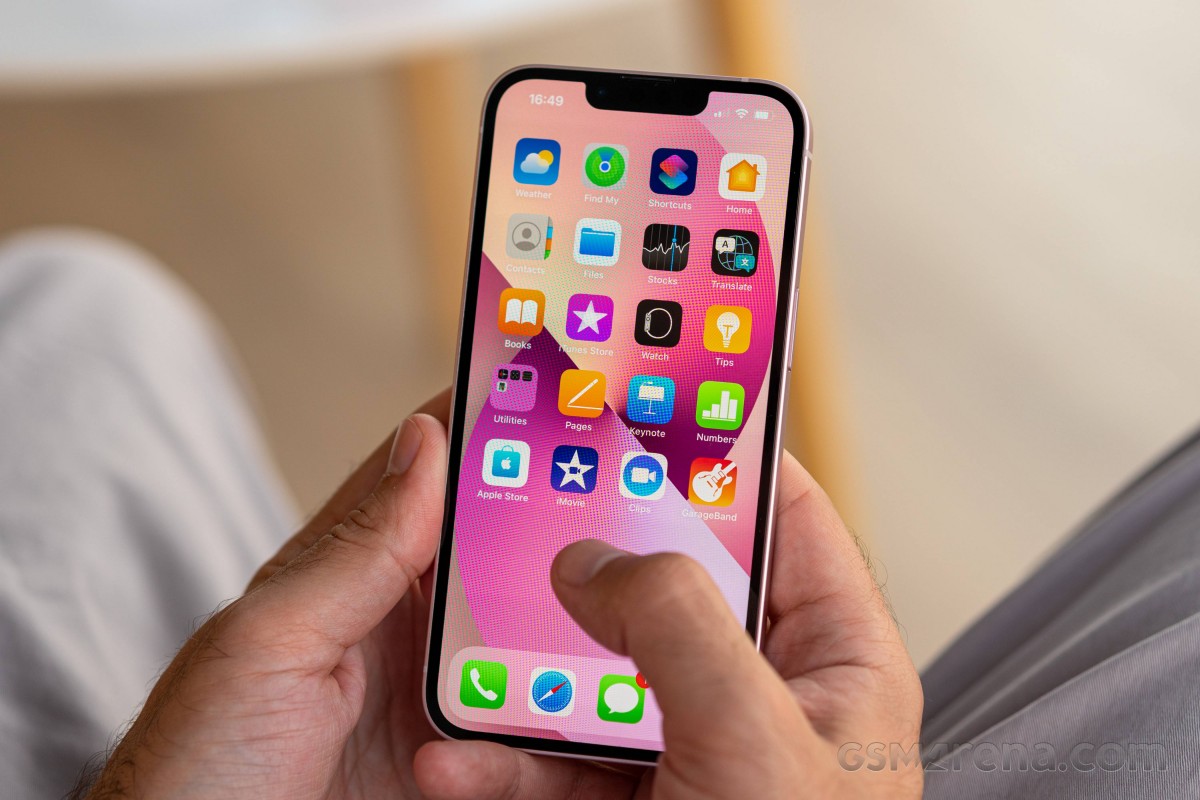Phone
iPhone 13 Review
Apple has provided us with a review unit that one of our writers can test. Read their big picture.
The number of new iPhone models is increasing every year. At the September 2021 event, Apple released four iPhone 13 series phones.
They include the entry-level iPhone 13 mini, iPhone 13, iPhone 13 Pro and the flagship iPhone 13 Pro Max. Each phone is designed to appeal to different types of users and comes in different sizes and prices.

Taking up space in between, the iPhone 13 offers impressive, high-end technical features and quality without paying a relatively high price. We recently put the iPhone 13 to the test to see how well it handles a variety of daily tasks, as well as more intense tasks like gaming, streaming, and remote work.
We tested Apple’s battery life claims, tested its new camera technology, and tested the new features of iOS 15 to find out if the iPhone 13.
Design: Apple follows tradition
Like all Apple products, the iPhone 13 is a well-designed device that looks sturdy and luxurious. It has the same aluminum frame and reinforced glass back as the iPhone 12.
The 6.1-inch screen is coated with a type of glass known as Ceramic Shield, which Apple says offers four times more protection than glass for competing smartphones, and the phone measures 5.78 x 2.82 inches. These features are all identical to the iPhone 12. The iPhone 13 is 0.1 inches thicker and the iPhone 13 has also gained weight (6.1 ounces from 5.73 grams).
Despite these additions, the iPhone 13 is comfortable to hold and easy to use with one hand. The screen size means the on-screen keyboard isn’t clunky like the smaller iPhone 13 mini and is large enough for streaming TV shows and movies.
Playing basic games on this screen is fine, but if you play with more detailed menus (like Minecraft or Fortnight), you may find the screen a bit small. You may also find it too small and a little tiring on the eyes if you switch TV or tablet and start watching all your content on this phone.
The notch – the small black curved protrusion at the top of the screen where the Faced sensor is stored – further reduces the space occupied by the screen.
The Lightning charging port is located between the two speakers at the bottom of the device and the power button is located in the upper right corner opposite the volume buttons on the left. In addition to charging the iPhone 13 with a Lightning cable, you can also charge the phone wirelessly with any Qi-compatible wireless charging pad and Apple’s proprietary Massif charging pad.
Display: vivid and sharp
Just as the design of the iPhone 13 has remained essentially the same compared to the iPhone 12, the quality of the display has also remained the same. It has a Super Retina XDR OLED display with the same resolution as the iPhone 12: 2,532 x 1,170 pixels. This means that the iPhone 13’s screen is crisp, bright and clear from all angles.
Colors look vibrant and lifelike, especially when the phone’s brightness is at maximum, which is great for gaming and watching HD videos. Even the most colorful games and shows like Candy Crush Saga and Ru Paul’s Drag Race never looked faded or faded.
Each iPhone 13 OLED pixel has its own light source, which makes blacks appear deeper and darker and improves contrast. This is great for both watching Netflix shows and reading e-books or online content. Makes lines of text crisp and clear, even if the font is small.
The iPhone 13 screen refresh rate is 60Hz. The refresh rate refers to the rate at which the image is refreshed per second. The faster the refresh rate, the smoother and less blurry the image will appear. For everyday tasks, the 60Hz refresh rate is more than adequate, and you will rarely, if ever, have a problem with it on the iPhone 13.
However, if you are an avid gamer, it can cause problems when playing graphics-intensive games. If you find yourself in this field, we recommend a phone with a higher refresh rate, such as the 90Hz refresh rate on the Google Pixel 6 or the 120Hz refresh rate on the iPhone 13 Pro and Pro Max.
Performance: Fast and responsive
The iPhone 13 handled everything we threw at it during testing, and without lag. The screen unlocks instantly with FaceID; it switches quickly between apps and functions, and the screen is responsive. This is largely due to Apple’s way of optimizing its iOS 15 software to work with the iPhone 13’s hardware. It’s also not uncommon for Apple iPhones to feel powerful and fast right out of the box.
Apple also attributes this to its A15 Bionic chip. This chip’s new computer processing unit (CPU), the unit that handles most of the phone’s daily processing power, is said to be up to 50 percent faster than the competition. The new graphics processing unit (GPU), which uses game graphics, augmented reality and the phone’s camera capabilities, is said to be up to 30% faster.

There’s also a new neural engine designed to perform up to 15.8 trillion operations per second. This means anything that uses AI or machine learning, such as Siri’s text-to-speech tools, directions in Maps, iPhone 13’s new Cinematic mode (read more about this in the Camera section below), and iOS 15’s The Live Text. the feature is fast, works as promised and doesn’t slow down or overheat your phone during the process.
Connectivity: never a problem
The iPhone 13 supports 5G, Gigabit LTE/4G and Wi-Fi 6. These are all the most advanced versions of the respective technologies, which means that no matter what network you’re connected to, you should be getting the fastest possible speeds on your local and data plans.
Simply put, if you’re having connectivity issues, the iPhone 13 probably won’t be a problem.
The iPhone 13 has a larger frequency range than the iPhone 12 series, which means it works in more 5G areas than before. In our tests, this meant that the signal was stronger and rarely dropped. We’ve only had problems while on holiday in the woods, but it’s more likely to be the signal strength of our network operator, not the phone itself.
Camera: Small changes make a big difference
On paper, the iPhone 13 camera setup looks almost identical to the iPhone 12, but don’t let that fool you. Apple has made several software and sensor updates that make this camera one of the best we’ve ever used.
Elsewhere, the iPhone 13 and iPhone 13 mini have Night Mode, Deep Fusion and HDR video recording with Dolby Vision. Night mode helps you take even better photos at night, while Deep Fusion takes multiple photos with multiple exposures and combines them together to get the best possible image.
As for the software, Apple has added two new features that, along with these hardware upgrades, will make your photos and videos look very professional. The first is called Cinematic Mode, and it uses so-called “rack focus”. This is a popular technique among filmmakers in movies to capture the audience’s attention. It works by shifting focus between subjects and adding a depth of field effect.
Battery: All-day best
According to Apple, the iPhone 13’s battery lasts “all day”. This is a bit vague, and if you dig into what it actually means, it promises 19 hours of battery life when watching videos, 16.5 hours and later on the iPhone 12, and up to 75 hours when listening to videos.
In our looping video test, where we played HD looping video at 70% screen brightness, the iPhone 13 lasted 19 hours and 24 minutes. A slight improvement over Apple’s claims.
Software: even easier to use
Apple always ships its new phones with the latest software, and on the iPhone 13, it’s called iOS 15. It’s familiar enough for current Apple users and easy enough for Android users, while offering a large number of new features. And redesigned to do so.
Final judgment
The best iPhone for the masses.
The iPhone 13 is the crown jewel of Apple’s latest iPhone series. It’s not too big, not too small, and it’s available at a price designed to appeal to the widest possible audience. Due to the relatively low price, few sacrifices have to be made. And with improvements in storage, performance, battery life and camera, it’s hard to find a phone that offers more at this price.
















